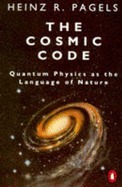What do you think?
Rate this book


333 pages, Mass Market Paperback
First published January 1, 1982
"Lately I dreamed I was clutching at the face of a rock but it would not hold. Gravel gave way. I grasped for a shrub, but it pulled loose, and in cold terror I fell into the abyss… what I embody, the principle of life, cannot be destroyed … It is written into the cosmic code, the order of the universe. As I continued to fall in the dark void, embraced by the vault of the heavens, I sang to the beauty of the stars and made my peace with the darkness."